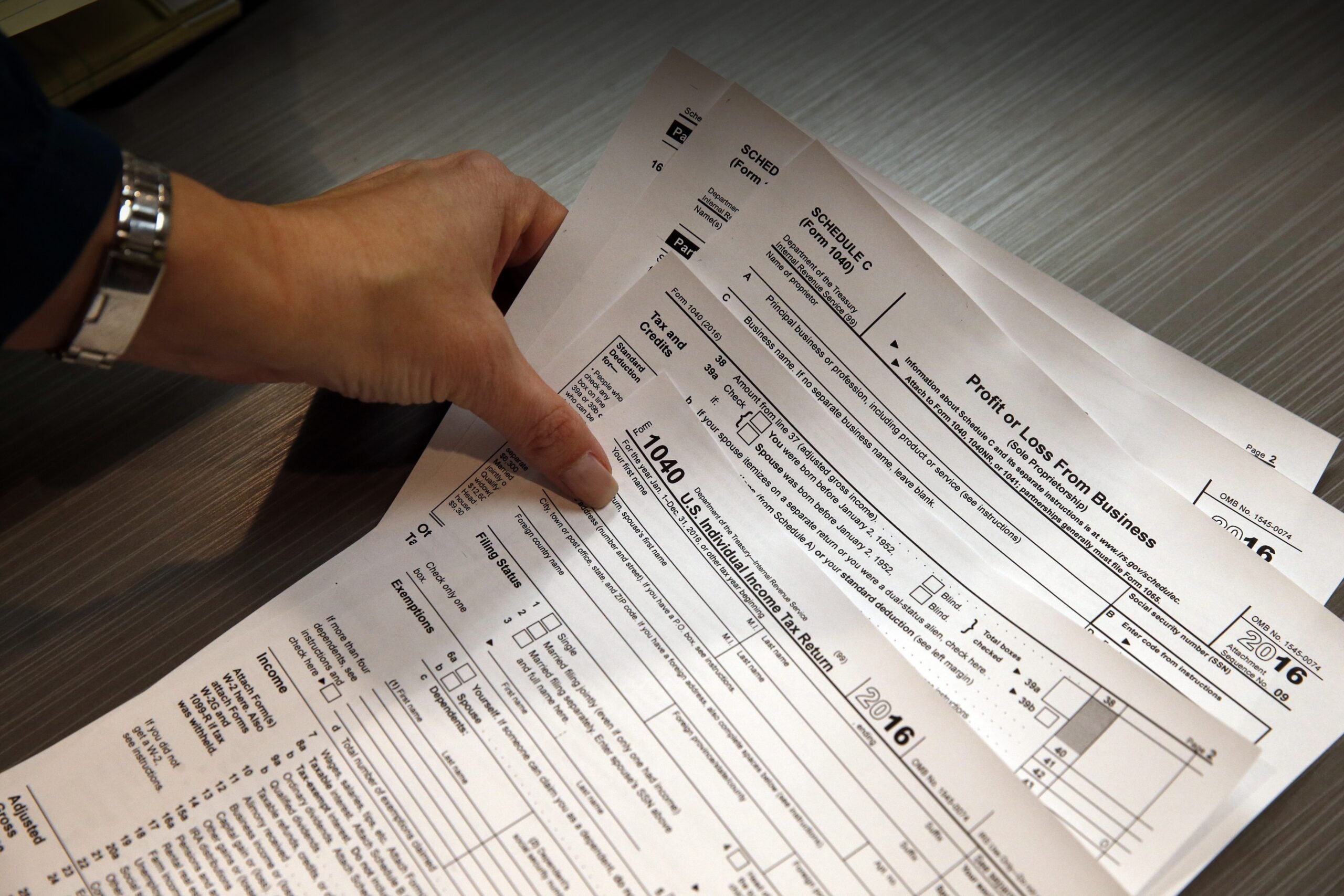Wisconsin farmers and their accountants say they’re in for a tough tax season as they file their first returns under the tax laws passed by Congress in late 2017.
Kari Apel, a certified public accountant and CEO of Apel Associates, said her firm usually starts filing tax returns for farmers at this point in the year. But they’re still waiting for information and filing forms from the state and federal governments.
“We just can’t finish anything because the forms aren’t ready,” Apel said. “So we’ll have to go back and review our numbers again and make sure things are correct once they finalize the returns.”
News with a little more humanity
WPR’s “Wisconsin Today” newsletter keeps you connected to the state you love without feeling overwhelmed. No paywall. No agenda. No corporate filter.
While some federal IRS employees have been called back to work amid the partial government shutdown, Apel said she expects more information to be released when all federal employees are able to return to work.
Pat Sturz, principal accountant with CliftonLarsonAllen in Eau Claire, said he has spent more than 60 hours in training on the recent tax law changes. He said it’s going to take more time to file returns this year.
“We tried to staff up with more younger staff to help us out,” Sturz said. “With the preliminary work I’ve done here since the first of the year, I don’t know that we staffed up enough.”
Sturz said one of the biggest impacts to farmers’ taxes is a change to what’s now called a qualified business income deduction. Under the old tax code, the deduction was taken out before farmers calculated their adjusted gross income.
“It would lower their income so they could qualify for the Affordable Care Act health care subsidy. Now their income would be higher, even if their taxable income would end up in the same place,” Sturz said.
That’s because the new deduction is taken after the adjustment to their gross income. Sturz said federal officials released guidance on how to apply that deduction last week, so he’s still working out all of the implications for his clients.
He said all the delayed information and forms could mean some farmers won’t have their tax returns filed by the March 1 deadline. Farmers and fishermen are required to file their federal returns by March 1 or they could face penalties on any taxes owed.
Wisconsin Public Radio, © Copyright 2026, Board of Regents of the University of Wisconsin System and Wisconsin Educational Communications Board.




